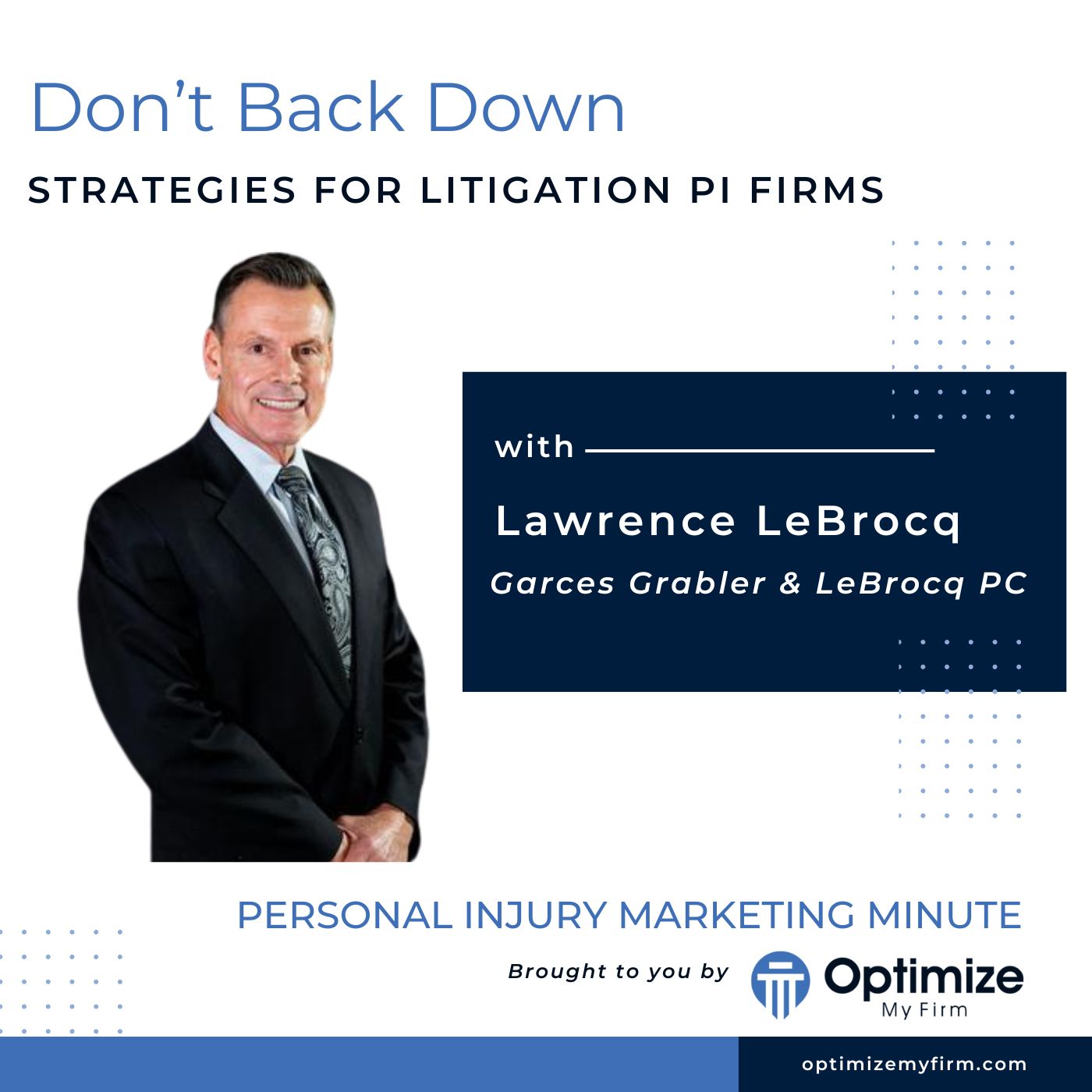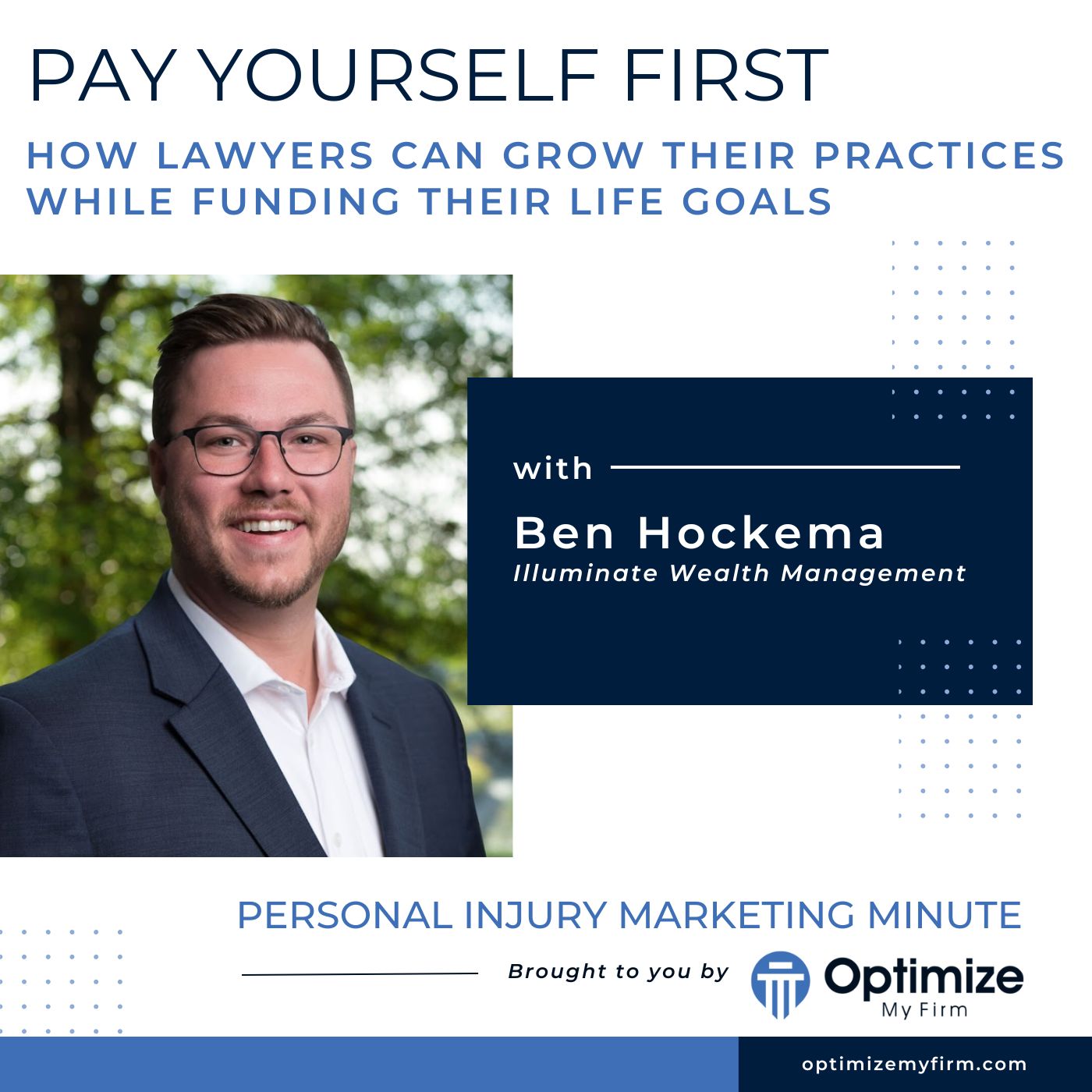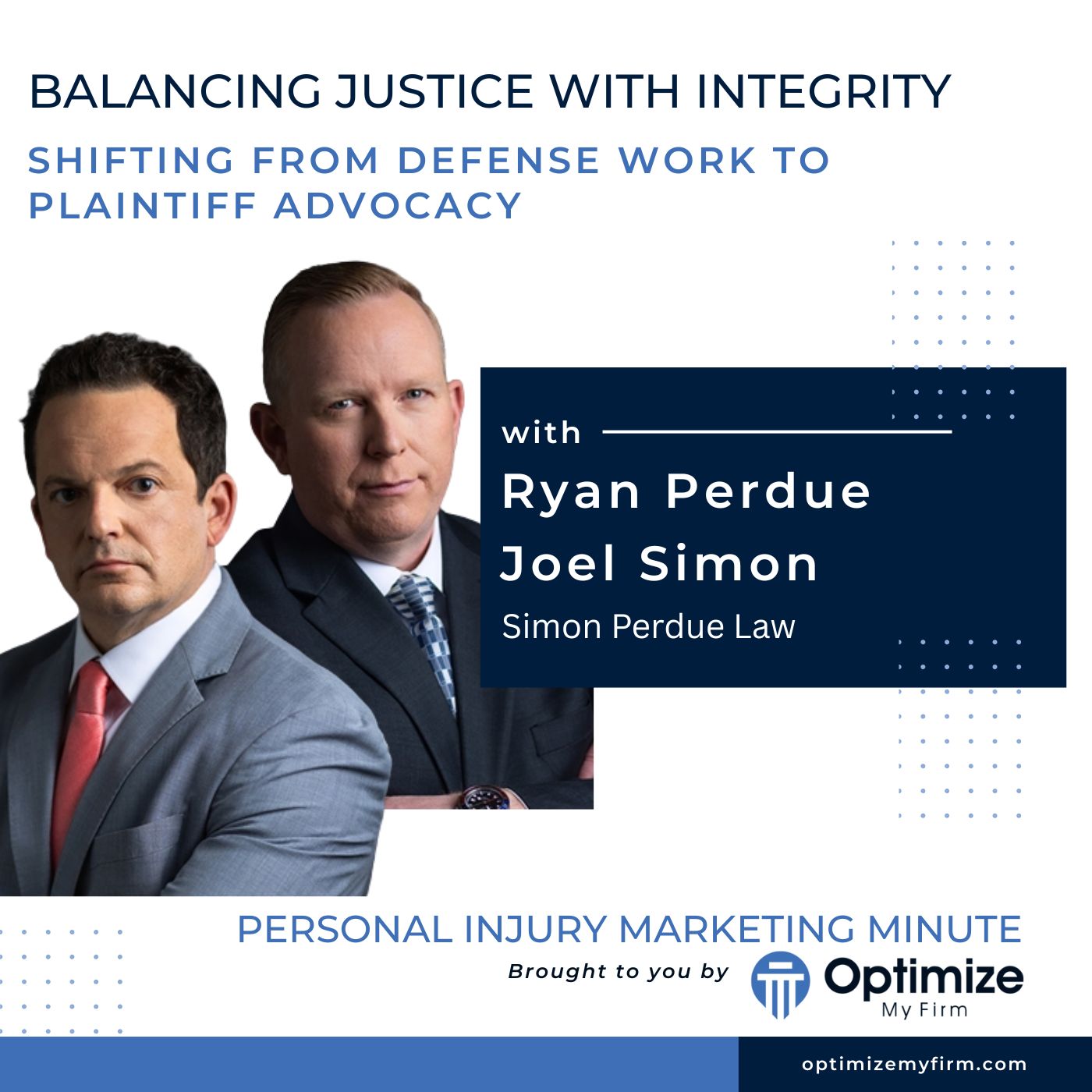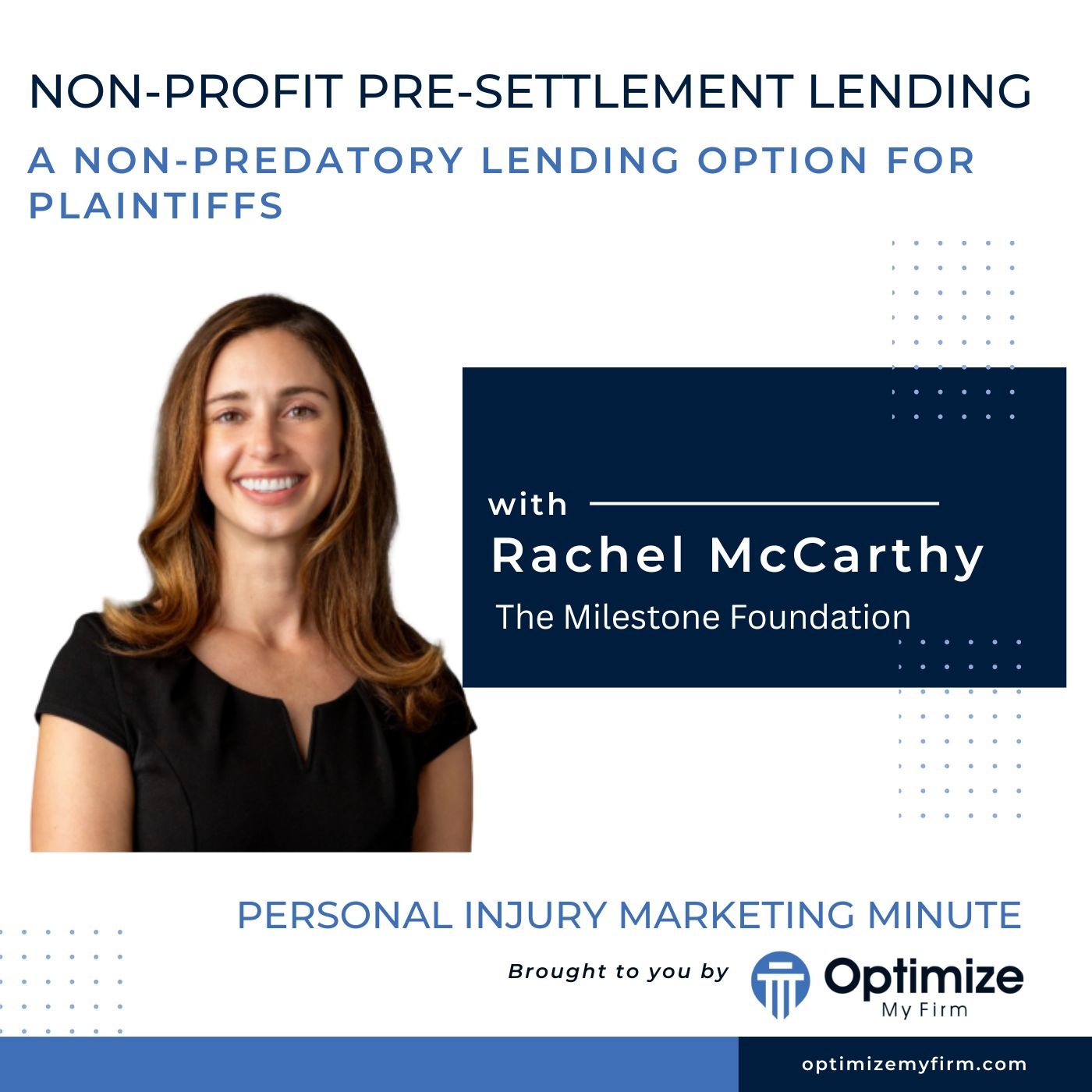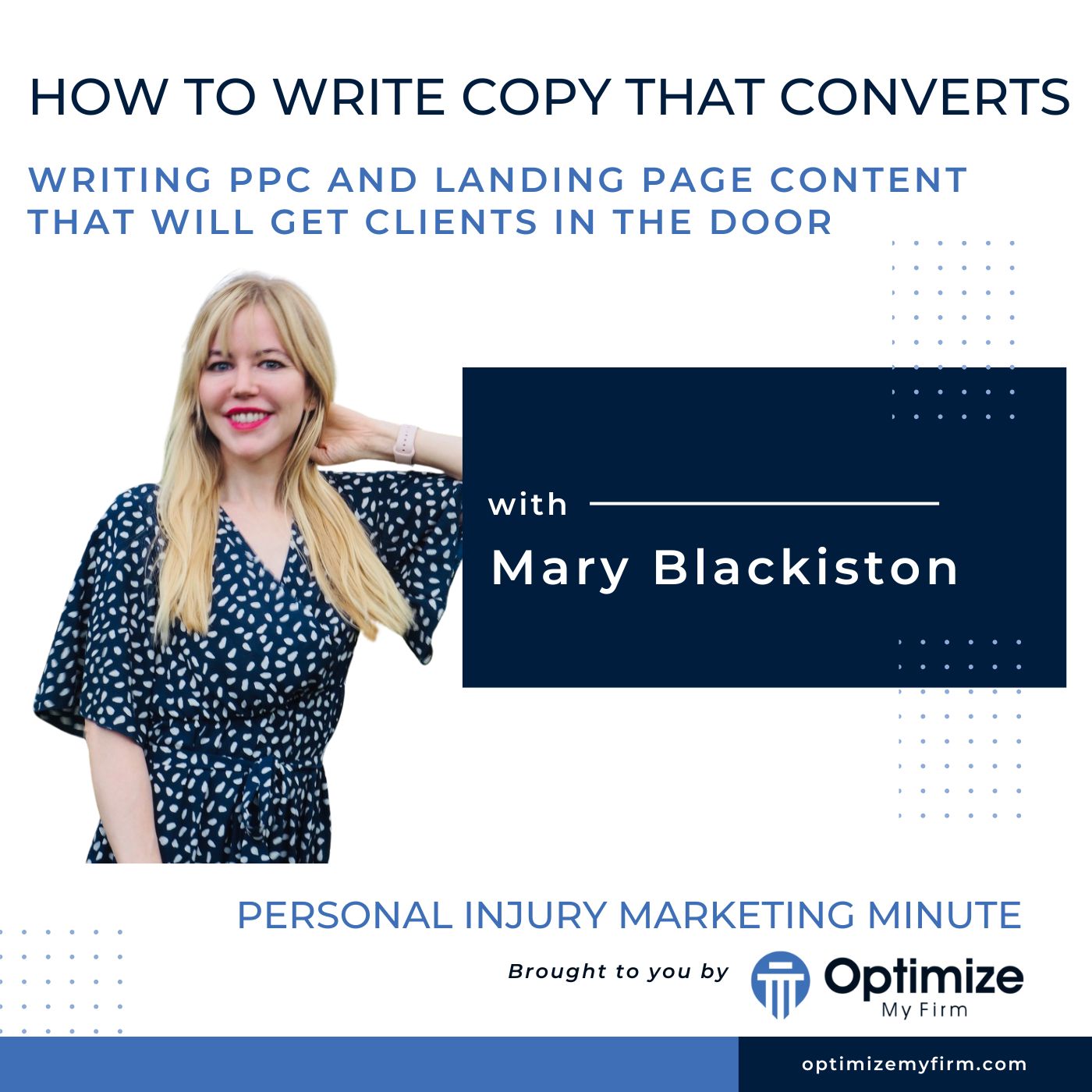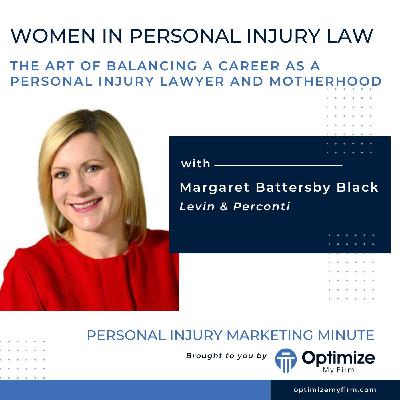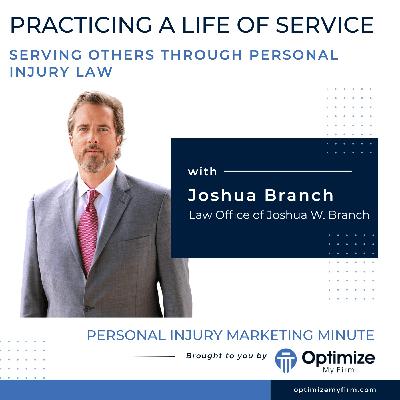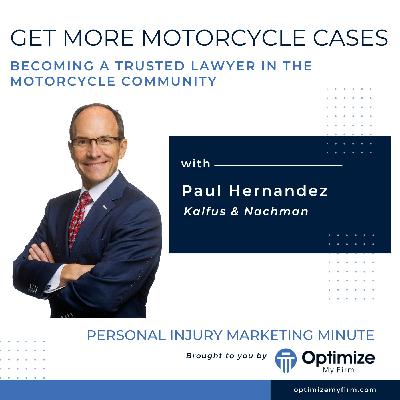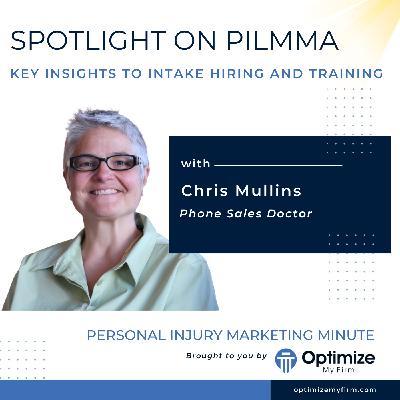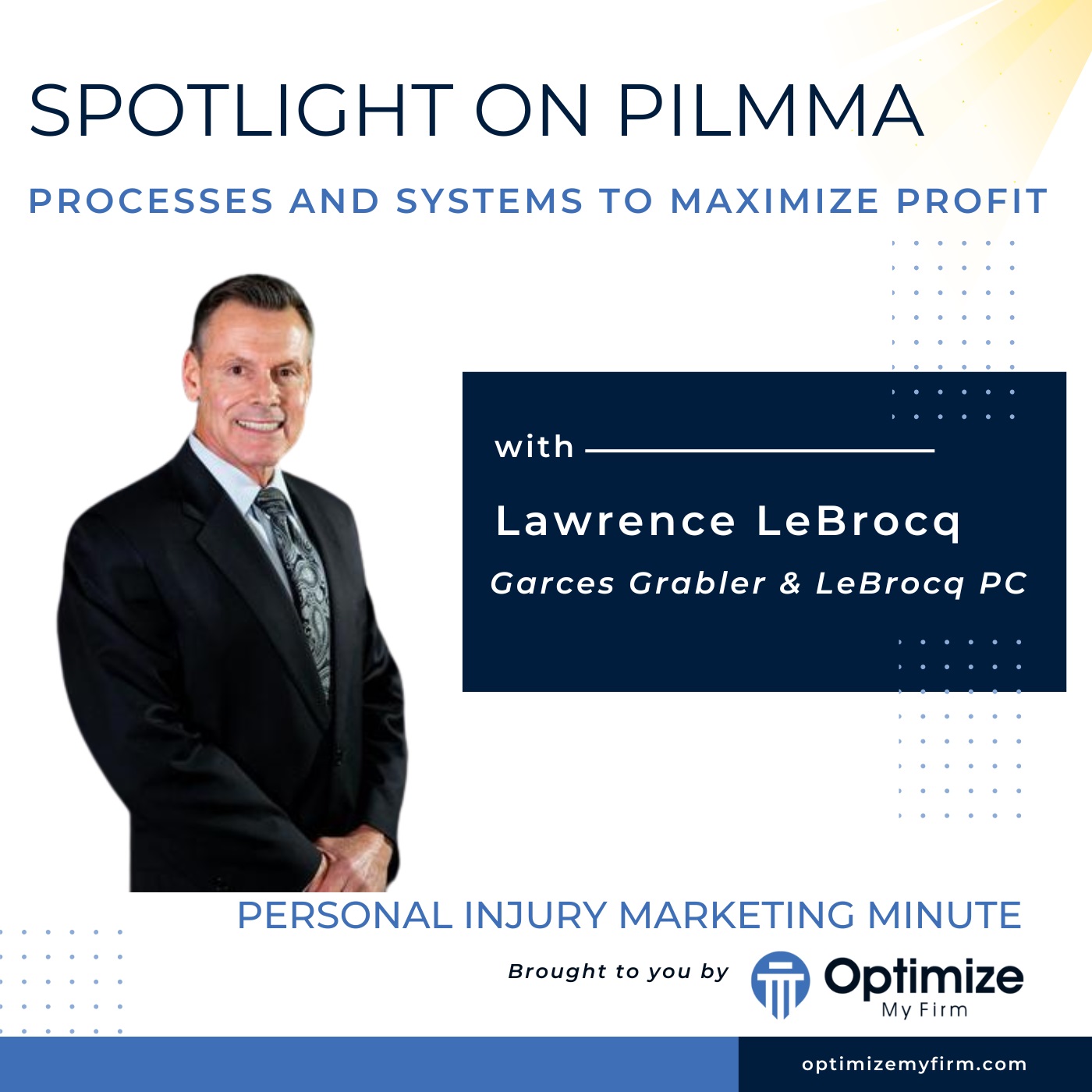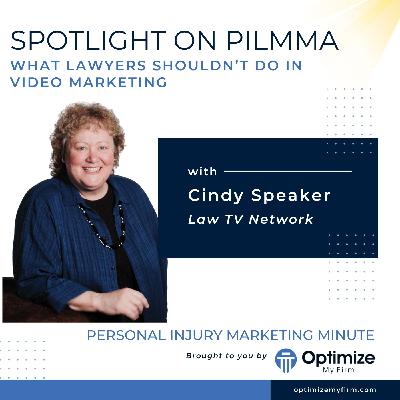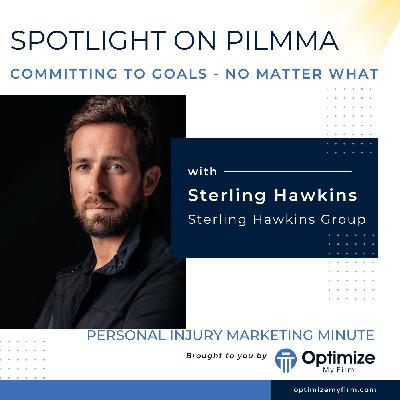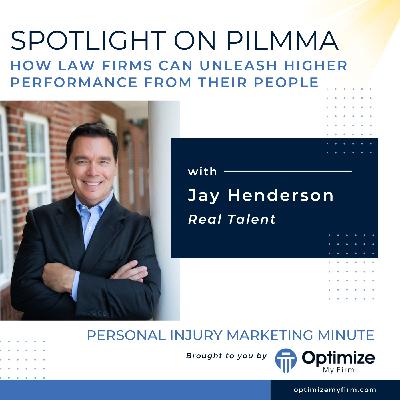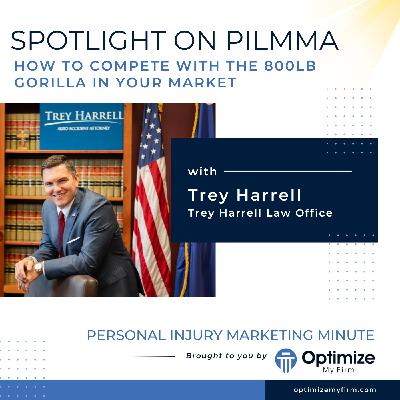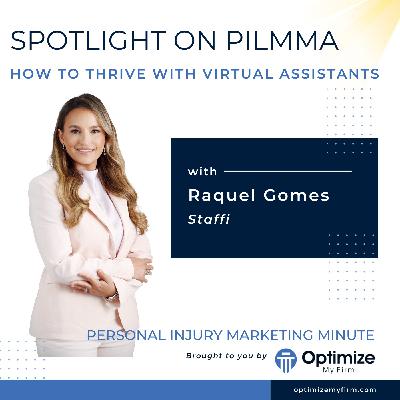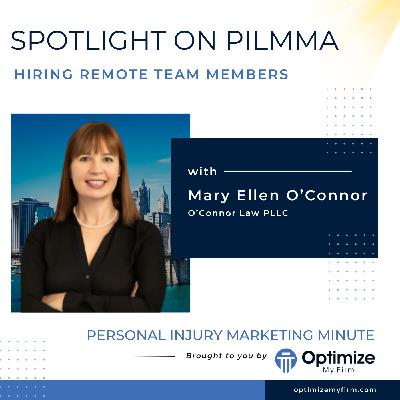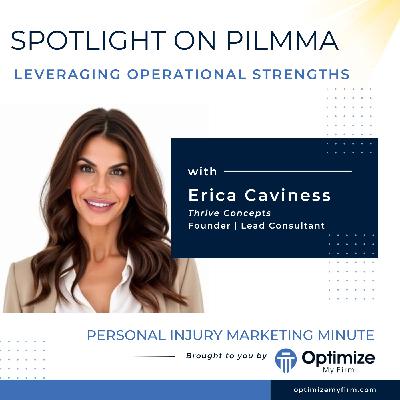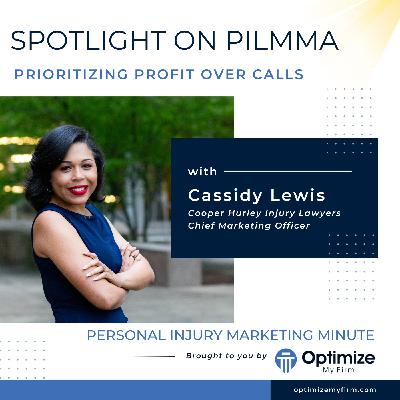Turning Facebook Scrollers into Signed Clients - PIMM94 Podcast
Description
Jan Roos from CaseFuel joins us today to discuss Meta advertising.
Meta ads can be effective for PI lawyers if used strategically, focusing on educational content and earlier stages of client awareness.
Success metrics should focus on qualified leads/transfers and cost per case, not vanity metrics like impressions.
Ad fatigue is a key challenge; campaigns require frequent creative refreshes and strategic targeting.
Meta ads can be more cost-effective than Google Ads, with clicks often $2-10.
Visit Jan here: https://www.linkedin.com/in/jan-roos-27078732/.
His company, CaseFuel: https://casefuel.com/home.
Check out The Law Firm Growth (LFG) Podcast: https://shows.acast.com/the-law-firm-growth-podcast.
See all episodes or subscribe to the Personal Injury Marketing Minute here: https://optimizemyfirm.com/podcasts/.
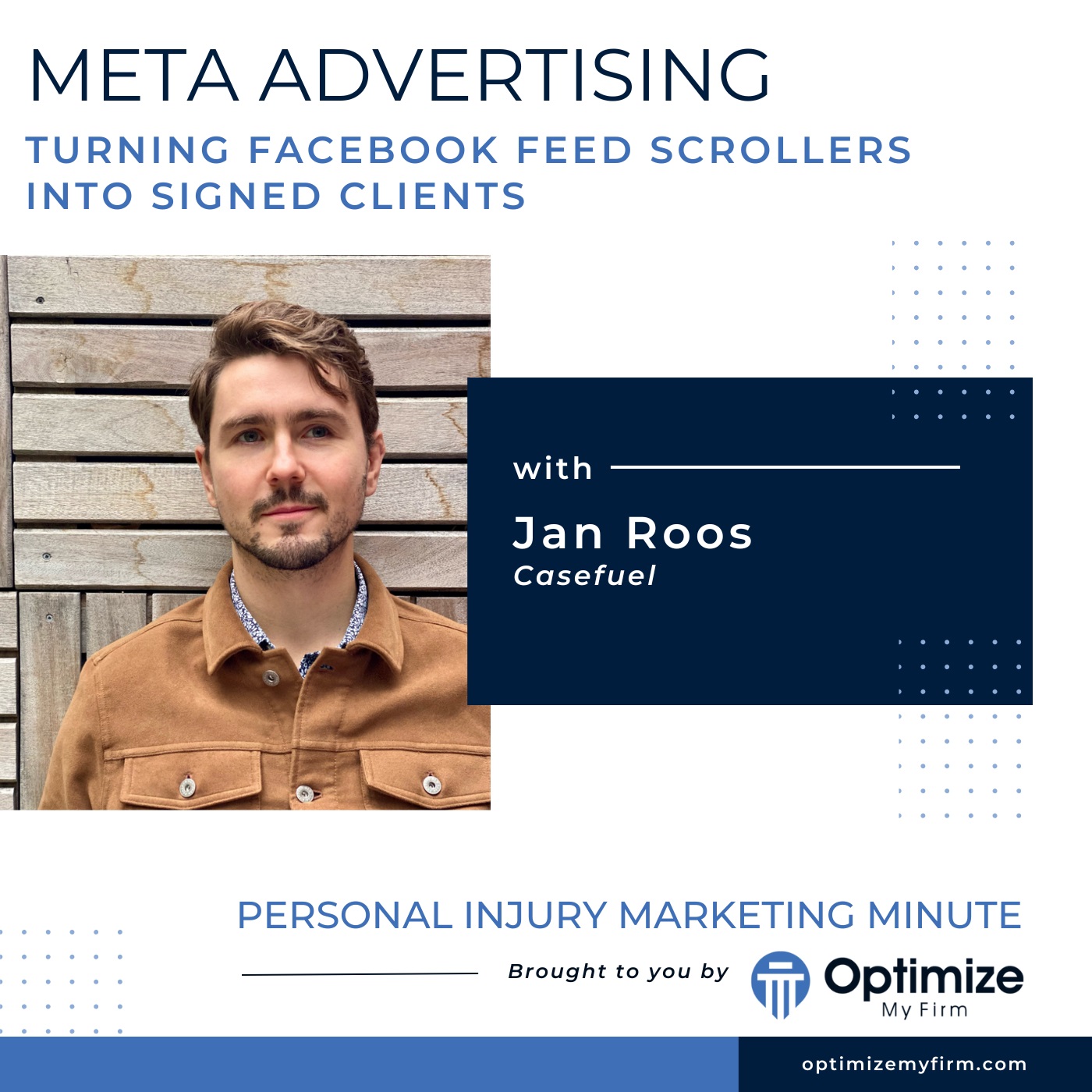
Transcript:
Welcome to the personal injury marketing minute where we quickly cover the hot topics in the legal marketing world I’m your host Lindsey busfield when discussing marketing options with our clients We constantly get asked if doing social media marketing is with it and we typically say no While social media marketing is great for some businesses I know I have personally spent a ton of money at Halara because of their facebook ads We just haven’t seen much success for personal injury lawyers who try their hand at meta But the lack of success isn’t necessary
necessarily because of the platform. It might be that lawyers have the wrong expectations of what success should look like when using meta or their marketing specialist isn’t leveraging the right opportunities.
Fortunately, Jan Roos: joins us today to discuss how personal injury lawyers can best use meta to grow their practices.
Jan Roos:
Thank you so much for joining us today. Oh, thank you for the awesome intro Lindsey.
Lindsey:
Well, I’m so happy to have you here, but why don’t you tell everybody else who’s listening who you are and what you do.
Jan Roos:
Cool. So my name is Jan. I got into the legal marketing space back in 2015. So at the time, I had a lot of friends who did SEO, and I was just like, honestly, I feel a little bit intimidated by the length of the contracts you have to sign.
So I got into a paper click, but I was also some step I was doing in a previous business.
I exited business a short earlier that year, and I basically paid traffic was a huge aspect of what we did.
So gone to Google and then shortly, kind of afterwards ended up focusing on where personal injury attorneys were actually the first clients that we ever worked with.
So we kind of went a little broader on paper click within the legal niche there. you know, by the time it was getting around 2020, the Google AdWords climate had changed a bunch.
I still think it’s a great platform to go on, but it’s just, you know, they’ve kind of had that creep like everything else in PI, so getting harder in order to find stuff that wasn’t already exploited by somebody else.
So we made a pivot to social around the end of 2019. And it was after reading one of my favorite books on marketing, which is Breakthrough Advertising by Eugene Schwartz.
Have you ever ever read that one, Lindsey?
Lindsey:
I haven’t read that one.
Jan Roos:
Yeah, it’s super old. I think it was published in the late 60s or early 70s, but he basically talked about these stages of market awareness.
And this is kind of disseminated through a lot of the marketing lore over the decades that have come since.
But basically, I was like, well, we have all this competition at this last mile of the customer decision journey, which is the solution stages he describes it, which encompasses pretty much everything, referrals, search, directories, anything that most people, that’s most of the legal marketing play with, but what if there was something that was outside of that?
And that’s kind of where we ended up looking into around 2019. So we started off in estate planning, and that was basically a huge focus of ours.
That happened to be one of the dumber luck timing things I’ve ever done in my life. We got started January of 2020 in earnest, and then COVID ended up happening.
So we had a bunch of estate planning firms that were generating business through seminars that we had to figure out how to do online.
So we used the webinar model. And then as the year progressed, we started getting drawn into some different things.
Like one of the first ones we had a ton of success, which was actually asbestos tort litigation, which is really, really interesting.
And it’s not the kind of thing that you would think would work on that. But we’ve been constantly surprised on how applicable this model has been to other practices since we’ve kind of like let the guard down.
Lindsey:
That kind of pretty much brings us to where we’re at today. Well, that’s great. And I love that you’ve tried your hand a few different things and have been able to bend and weave with the different paths that the marketing market has kind of taken.
So I just kind of want to get into some basics first. Because I’ve been using the terms Facebook ads and meta interchangeably.
Jan Roos:
Does meta mean more than just Facebook ads or is that pretty much at this point? Yeah. So if I have, I actually still call it Facebook ads too.
But technically, yeah, like so they did the whole rebrand to meta a couple of years ago. I was like, I don’t want to do this.
But I mean, technically, when we’re talking about the platform, if you want to just run ads on meta with no restrictions, which I don’t recommend, by the way, you would be showing up on Facebook, News Feed, all the different.
platforms within Facebook, marketplace, messenger, etc. Instagram is probably the biggest non Facebook entity that people can get success on.
And then they also have stuff around like, mean, they bought WhatsApp, a lot of other things. And they’ve even been building out a content network for a while.
So this is kind of one of those like dark places you don’t want your ad budget to go on Facebook, and you need to realize what your setups are to avoid it.
But like, you could literally be showing up on, you know, dumb, like little games and stuff that are owned by a meadow or like on netter for some point too.
So yeah, it’s it’s more things.
Lindsey:
But I honestly think the like the 80 20 of the platform is still Facebook, specifically the newsfeed too. Yeah.
Right. And that’s where I typically ads pop up probably because I’m not playing the games or on Instagram or I mean, it’s been a little time on marketplace.
So, you know, I’ve never really paid too much attention to the ads there. yeah, it seems as though I’m looking at at Facebook throughout the feed, like, you know, like every few posts or so you get an ad.
I was actually talking to my business partner, Len, this today, where every time he goes on Facebook, Facebook now thinks he’s a lawyer, and so he will get shown the same ad that a lawyer would get for different legal software or this and that every lawyer needs to know now.
And so that’s clearly a big piece that a lot of legal marketing agencies are leveraging right now, but it sounds like lawyers as well are taking advantage of that too.
And so looking at the ads themselves, so diving a little bit into this, and again, piggybacking on the conversation that I had earlier today, a lot of these ads just kind of blend in together.
And so it’s really kind of hard to pop out and stand up because people just kind of scroll by.
So for the ads themselves, what types of content should lawyers
Jan Roos:
be creating. Yeah. Well, I want to make a distinction first because there’s kind of like a lot of different, then it’s super funny.
I actually, we’ll talk about this a little bit later, but like, I also have a podcast. and you’re on a great episode.
But I actually had something on the podcast you’re focused on this other side of social. So when people say Facebook, a lot of times people or social media or whatever, I would kind of say there’s two major disciplines up.
So there’s paid social and there’s organic social. It’s kind of like, I mean, honestly, kind of like Google if you think about it.
And a lot of times when people talk about creating content, a lot of the times that’s for organic. And I think the same principles kind of apply, but like you have to create a ton of content for organic.
And I’m lazy. I don’t like bugging my clients to do stuff. I try to do like basically make one thing that works and then just pay Facebook to get in front of people, right?</


